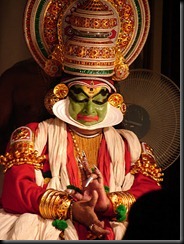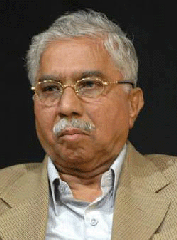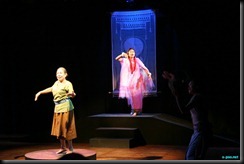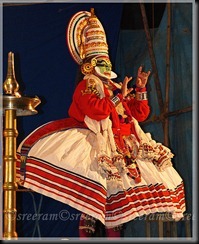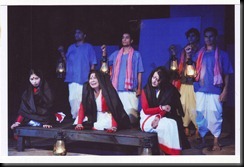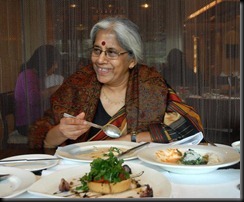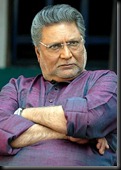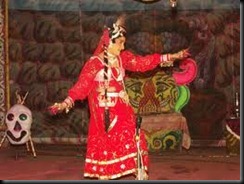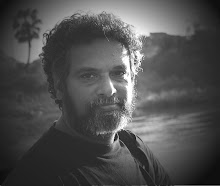Tagore Festival @ kadambazhipuram, a village in palakkad, Kerala.
Kadambazhippuram is a remote village in Palakkadu district Kerala, almost 6 kilometers from Srikrishnapuram the nearest town and about 25 km from the district headquarters Palakkadu. In this typical village space a national theatre festival on the literature of Rabindranath Tagore is to take place. And the productions include works of Late Habib Tanvir, Kavalam Narayana Panikkar, Anuradha Kapoor, and Neelam Mansigh Choudhary. Actors like Seema Biswas, Gopi Sopanam are performing.
It is heartening to see that theatre of this magnitude and quality happens in a remote village, where most of our theatre is decided by a few cities; it can be said that the present scenario of Indian theatre is such that its predicament is decided by the city based sensibility and the concerns and pre-occupations of the urbanite. The major landscape of the Indian rural reality is sidelined and, marginalized in its physicality, aesthetics, and content, mode of operation and in all realms of its existence. It is at this context this festival become important. it is not just a festival, it is the continuity of the village based theatre movement named Natyasastra, which organizes workshops, produce new plays and perform it, organize seminars and festivals and all allied activities in connection to theatre, ably lead by Dileepan and a host of his friends, dear and near ones. Kudos to him and his team.
The theatre festival is scheduled feom 24th of December to 28th of December. The plays included are
24 December 5.30 pm Inaugural session. Ms Anuradha Kapoor inaugurates the festival ; Neelam Mansingh Chaodhary releases the festival book. The keynote address is given by Ms. Maya twen berg from the theatre academy of Finland, Helsinki.
7.00 pm Play Jeevit Ya Mrut dir Anuradha Kapoor, by Vivadi New Delh
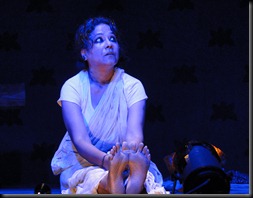 Vivadi’s Jivit ya Mrit, dramatized by Geetanjali Shree from the short story in which a widow Kadambini . People think of her as dead while she is alive all the time. To prove that she was indeed alive, she has to die in the end.
Vivadi’s Jivit ya Mrit, dramatized by Geetanjali Shree from the short story in which a widow Kadambini . People think of her as dead while she is alive all the time. To prove that she was indeed alive, she has to die in the end.
Seema Biswas performs this solo, less realistic and more a mental landscape of imaginings that displayed her marvellous speech range from high screams of fear to bass rumbles entertaining her young nephew.
The play was directed by the director of National School of Drama Anuradha Kapoor.
Sunday, December 25
10.30 a.m.: Meet the artists
7.00 p.m. "A Wife's Letter,' (Adaptation of Tagore's play, 'Streer Patra'), dir. Neelam Mansingh Chowdhry, for The Company, Chandigarh 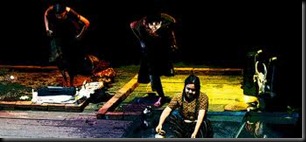 The protagonist of the play is a child bride Mrinal who secretly writes poetry to assuage the listlessness of her routine and mundane life. She finds companionship with the cows and buffaloes in the house while fulfilling the routine chores of her household. In this monotonous universe enters Bindu, the orphaned sister of her older sister-in-law. This simple event becomes the trigger which unravels layers of experiences that are then shared and collectively explored. The two characters become the pivot and everything revolves around their beautiful and haunting relationship, fraught with ambiguity.
The protagonist of the play is a child bride Mrinal who secretly writes poetry to assuage the listlessness of her routine and mundane life. She finds companionship with the cows and buffaloes in the house while fulfilling the routine chores of her household. In this monotonous universe enters Bindu, the orphaned sister of her older sister-in-law. This simple event becomes the trigger which unravels layers of experiences that are then shared and collectively explored. The two characters become the pivot and everything revolves around their beautiful and haunting relationship, fraught with ambiguity.
The director has used teo actors two play Mrinal - one is participating in the physical action on the stage and the other who is taking the narrative forward. ‘The male actor who is playing Mrinal is not constructing the role as a female impersonator nor is he playing androgynous. He is creating a de-gendering of his role, leading perhaps to a more egalitarian approach to performance’ says the director.
Monday, December 26
10.30 a.m.: Meet the artists
6.00 p.m.: Tagore Sketches (Short Plays) presented by Thrissur Natakasangham, Dir: C.R.Rajan, K.B.Hari.
7.00 p.m.: 'Bali,' (Malayalam adaptation of Tagore's play, 'Bisarjan,') presented by Natyasastra, Dir. Narippatta Raju.
Gobindamanikya, Tripura’s monarch, on realizing the futility of blood sacrifices, issued a ban on these unnecessary slaughters at the altar ofthe Goddess. Undoubtedly, this caused a general discontent in the state that was encouraged by high priest Raghupati, who held himself supreme in the matter of religion. He felt that by prohibiting the ritual, the king had definitely committed a grave crime and to punish and humiliate him, he tries various means to drive everyone against Gobindamanikya.
Tuesday, December 27
10.30 a.m.: Meet the artists
6.00 p.m.: Tagore Sketches (Short Plays) presented by Thrissur Natakasangham
7.00 p.m.: 'Chandalika,' presented by Sopanam, Thiruvanathapuram, Dir. Kavalam Narayana Panicker
Tagore's Chandalika (Untouchable Girl), which was modeled on an ancient Buddhist legend describing how Ananda, the Gautama Buddha's disciple, asks a tribal girl for water.
8.00 p.m.: 'Khud our Khuda,' presented by Sopanam, Dir. Kavalam Narayana Panicker, performed by V. Gireesh.
Through the highly inventive imagery and rich and thought provoking ideas contained in the poetry of Rabindranath Tagore, a dramatic text is created to highlight their subtle, but powerful theatre potentials. The basic theme envisaged in the production, as the name Khud and Khuda suggests is the inevitable relationship between the individual and the universe, the man and the God, the micro and the macro. Tagore’s poetry celebrates the time immemorial theme of the struggle of the human spirit, its continuous search for the ultimate, its expectations and failures, sorrow and joy all described in the subtle and gross perspective. Following the path of the classical poets of the yonder past like Valmiki and Vyasa, Tagore also contemplates on dharma and nurtured the grand vision of the ultimate liberation of man. In his lofty message, the constant chase or the hunt that man is engaged in within and without for his own identity proves that the hunter and hunted for are one and the same.

Talking about the play, ‘Khud aur Khuda’, Panikkar described how the play in four languages and yet the most effective was the fifth language i.e. the language of theatre. The Director ensured smooth transition from one language to the next.
Wednesday, December 28
10.30 a.m.: Meet the artists
3.00 p.m.: Seminar . Noted journalist Venkitesh Ramakrishnan will present the paper and the participants are Raghuthaman, Chandradasan, Gramaprakash, Ramesh Varma, Ratnakaran, and Sreeja.
5.30 p.m.: Tagore Festival Valedictory Function
Inauguration: Kavalam Narayana Panikker
Keynote Address: Prof. K.Satchidanandan
7.00 p.m.: 'Raj-Rakt,' (based on Tagore's 'Bisarjan,' and 'Rajarshi,') presented by Naya Theatre, script, design & direction, Habib Tanvir.
Tagore’s Visarjan is one of his most powerful and most flawed plays, based on a clash between the priest of a kingdom and his king over whether animal sacrifice should be banned. Tanvir’s instinct was to go back to the far stronger novel, Rajarshi (1887) on which Visarjan was based, and meld the play and the novel. Raj-Rakta is one of the last productions directed by Habib Tanvir, and he has utilised minimalism as the theatre language. He has insisted the actors to control and restrict the gestures, movements, and be specific and sharp so that the idea and politics behind the performance will be crystal clear. This work is a classic example of how to write an adaptation. I remember watching Habib doing the rehearsals and insisting on the specificity of each moment, the clarity of the political connotations he tried to bring up in this production. This play is about the religious fundamentalism taking over the nation, and its system. The political power being manipulated by the religious fundamentalists this is a highly contemporary situation.
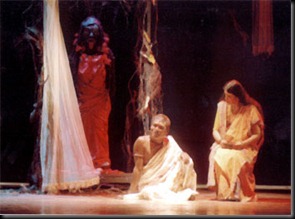 Beneath the umbrella of political intrigue, the play deals with religious and social issues. Central to the plot is the moral confrontation between the King and the Purohit. A child's simple query makes the King question the validity of bloodletting. After an animal sacrifice, a young girl asks the King, "Itna khoon kyun?
Beneath the umbrella of political intrigue, the play deals with religious and social issues. Central to the plot is the moral confrontation between the King and the Purohit. A child's simple query makes the King question the validity of bloodletting. After an animal sacrifice, a young girl asks the King, "Itna khoon kyun?
This play is performed by the seasoned artists of Naya Theatre.
This festival is going to be truly meaningful tribute on the 150th birth centenary celebrations of Rabindranath Tagore. A festival set in a village atmosphere for a poet and dramatist who was searching for the villages of India for the cultural identity and the spirit of the nation. many of his characters dreamed to travel to the villages and the peaceful serenity of the rural nature, its people that can cure many diseases caused by the urban chaos.
